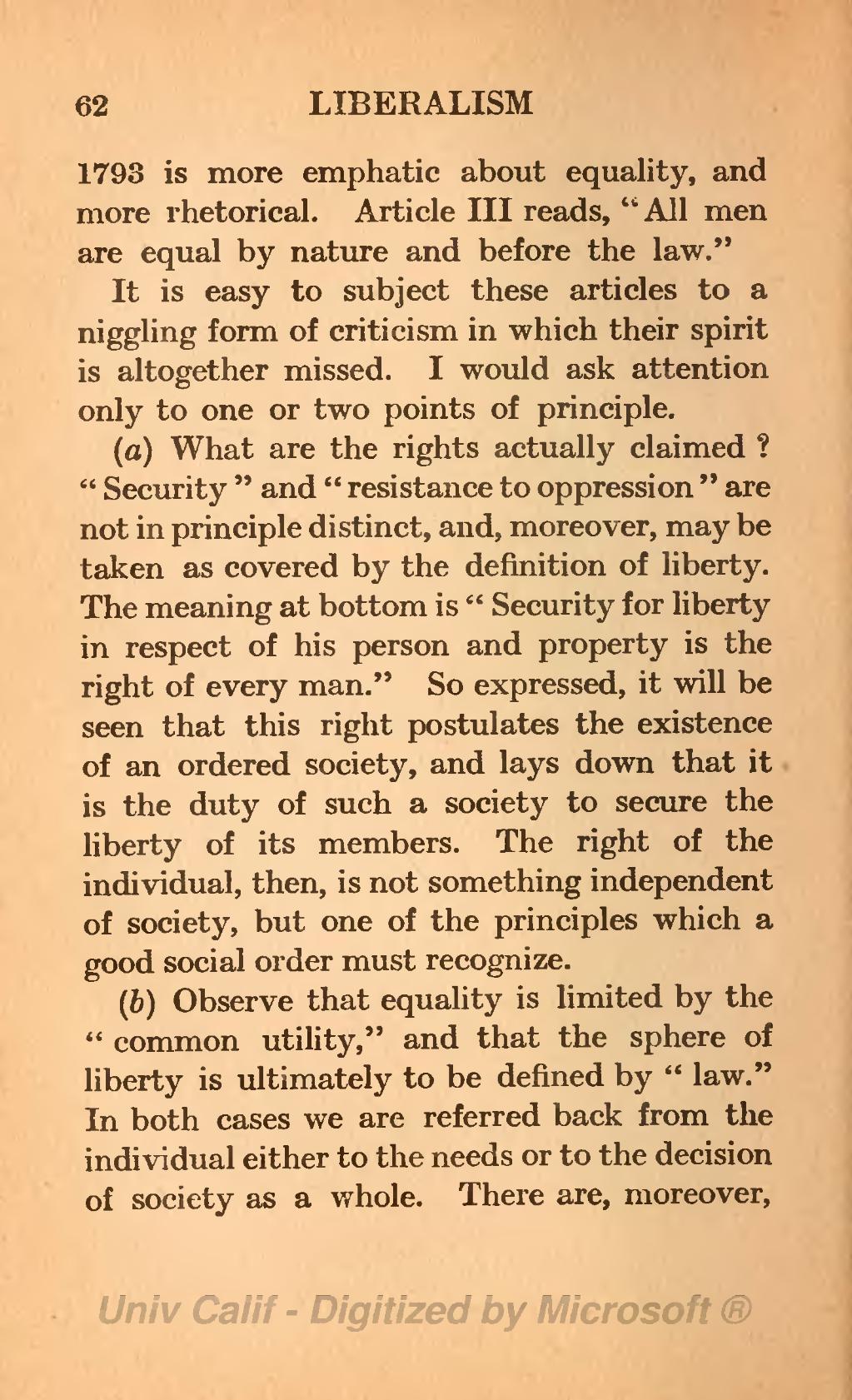1793 is more emphatic about equality, and more rhetorical. Article III reads, “All men are equal by nature and before the law.”
It is easy to subject these articles to a niggling form of criticism in which their spirit is altogether missed. I would ask attention only to one or two points of principle.
(a) What are the rights actually claimed? “Security” and “resistance to oppression” are not in principle distinct, and, moreover, may be taken as covered by the definition of liberty. The meaning at bottom is “Security for liberty in respect of his person and property is the right of every man.” So expressed, it will be seen that this right postulates the existence of an ordered society, and lays down that it is the duty of such a society to secure the liberty of its members. The right of the individual, then, is not something independent of society, but one of the principles which a good social order must recognize.
(b) Observe that equality is limited by the “common utility,” and that the sphere of liberty is ultimately to be defined by “law.” In both cases we are referred back from the individual either to the needs or to the decision of society as a whole. There are, moreover,
